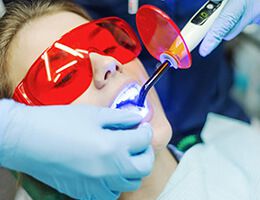If you are suffering from tooth decay, infection, impacted wisdom teeth, or need to create space between your teeth for orthodontic procedures, we may suggest tooth extractions. Tooth extraction is also performed for other reasons.
Tooth extraction is the most common procedure of oral surgery. It is often used as a last resort when no other procedure or treatment works to save your teeth. The need for opting for tooth extraction may vary from patient to patient.
Most commonly, tooth extraction is performed because of the deep decay in your teeth. When the decay affects your teeth’ surface and pulp, it may become difficult to treat it with a root canal procedure. As a result, we remove your teeth so that the nearby areas remain unaffected.
Sometimes, baby teeth in your mouth may not shed at all. They take up the extra space on the arch, causing your nearby teeth to slide out of place. We perform tooth extraction surgery so that the position of your remaining adult teeth doesn’t get affected.
If you are suffering from severe gum disease and even your underlying bone cannot hold your teeth in place, we may have to perform extraction surgery to save the remaining areas of your mouth. It usually happens when your gum disease advances into advanced periodontal disease.
We try to save your injured teeth in most cases with the help of root canal therapy. But some instances fracture your teeth in such a way that no restoration procedure comes to the rescue. In this situation, we perform extraction of the fractured teeth.
We may have to remove one or more of your teeth to create enough space for your other teeth to move into alignment during an orthodontic procedure like braces.
Tooth extraction procedure may be simple or complex, depending upon the severity of your condition. Simple extractions are performed on your fully erupted teeth. We apply a local anesthetic on the site of the extraction. We use dental instruments to elevate your teeth and then remove them with forceps.
Surgical extractions are performed on the teeth that aren’t fully visible or haven’t erupted. This procedure is more complex and involves making a small incision in your gum tissue. We also remove the adjacent bone tissue or infection (if any). Sometimes, we may also section your teeth into smaller fragments to remove them completely.
Please reach out to Persimmon Dental Care in Dublin, CA, to have a consultation with our dentists. Please call us at (925) 999-8282 or schedule an online consultation, and we’ll guide you further.













MON - FRI 9:00 am - 6:00 pm
SAT - SUN Closed